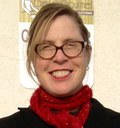Seminar Series: Julia McQuillan, Sociology, University of Nebraska-Lincoln
| When |
Oct 19, 2015
from 12:00 AM to 01:00 PM |
|---|---|
| Where | 1101 Morrill Hall |
| Contact Name | Tiffany Pittman |
| Contact Phone | 301-405-6403 |
| Attendees |
Christine Bachrach Luoman Bao Diana Cassar-Uhl Esha Chatterjee Feinian Chen Philip Cohen Nicole DeLoatch Brittany Dernberg Yuko Hara Denae Johnson Joan Kahn Zhiyong Lin Lucia Lykke Danela Marshall Ui Jeong Moon Jessica Pena Joanna Pepin Lea Pessin Perry Threlfall |
| Add event to calendar |
|
About the Talk
Do differences in experiences of motherhood (e.g. number of children, age at first child, and parenthood strategies) by race / ethnicity and social class mean that attitudes toward motherhood also vary by intersecting social locations? We use an intersectionality approach to examine attitudes toward being a mother among Black, Hispanic, Asian, and White women of higher and lower SES (as measured by education). Results using the National Survey of Fertility Barriers (N=4,796) indicate only modest differences between race / ethnic / education groups. White and Asian women have higher positive attitudes toward being a mother than Black and Hispanic women. Only Black women appear to distinguish between having and raising children; surprisingly, lower educated Hispanic women are less likely to think that they would be a mother, see motherhood as fulfilling, and think that it is important to have and to raise children compared to higher educated White women.
About the Speaker

Julia McQuillan is Professor and Chair of the Department Sociology at the University of Nebraska. Her research explores dynamics of social inequality (primarily race, class, gender) with an emphasis on mechanisms for social change. She was a core collaborator on the NIH-funded National Survey of Fertility Barriers (NSFB) and, with the NSFB team, has done research on social and behavioral dimensions of infertility and fertility in the United States. She also studies efforts to create greater inclusion and engagement in science from early adolescence (through collaboration an NIH Science Education Partnership Award) to higher education (through collaboration on an NSF ADVANCE award).
Visit Professor McQuillan's webpage
Please note that, at the present time, Morrill Hall is not accessible for handicapped individuals.
